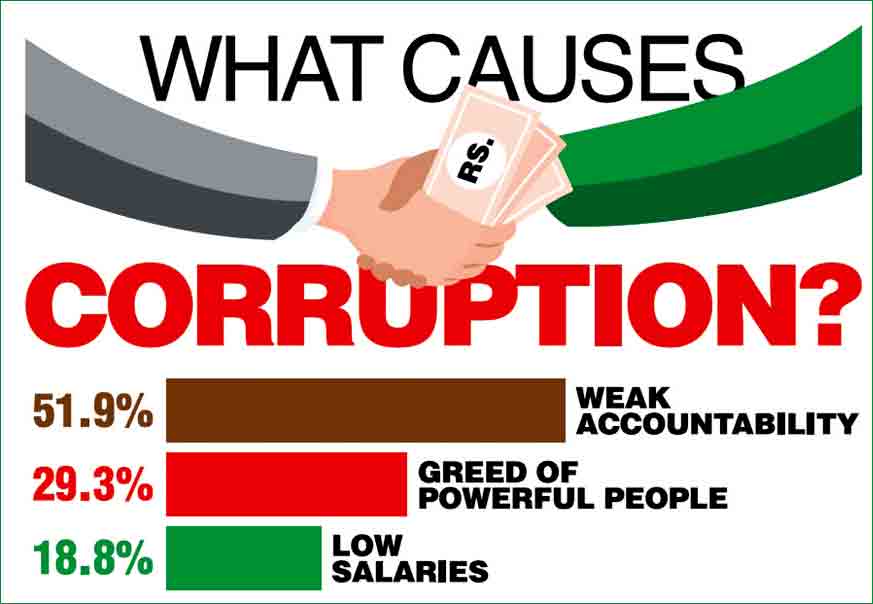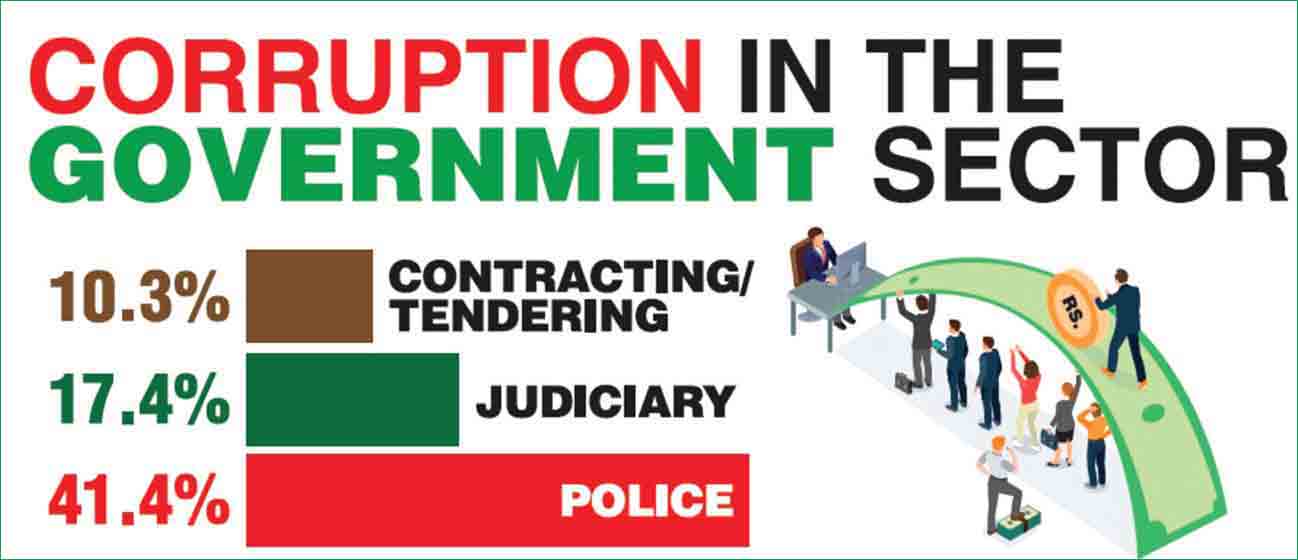ISLAMABAD: Federal Information Minister Fawad Chaudhry on Wednesday urged the Chief Justice of Pakistan and senior judges to consider the fact that the judiciary is one of the most corrupt institutions in the country, “especially when the salaries of the judiciary are among the highest in the region”. “.
The federal minister’s statement came after the National Corruption Perceptions Survey 2021, conducted by Transparency International Pakistan, concluded that the police and judiciary are the most corrupt institutions in the country.
The survey also revealed that most people consider the federal government’s self-accountability unsatisfactory.
Taking to Twitter, Fawad Chaudhry said that according to a new survey report by TI, the perception of corruption in the police and judiciary is at an all-time high.
“It should be a moment of reflection for the Chief Justice of Pakistan and senior judges, especially when the salaries of judges are the highest in Pakistan when we consider the region. It is the same with the police,” he said.
According to a statement from TI, the firm conducted the “National Corruption Perceptions Survey” five times in the past 20 years: NCPS 2002, NCPS 2006, NCPS 2009, NCPS 2010 and 2011.
In 2021, the survey was conducted in all four provinces from October 14, 2021 to October 27, 2021, reflecting the general public’s perception on very important governance issues.
The major findings of the survey are as follows:
- National Corruption Perceptions Survey 2021 has revealed that police remains the most corrupt sector, judiciary was seen as second most corrupt, tender and third most corrupt, while health has become fourth most corrupt since last NCPS 2011 . According to the National Judicial (Policy Making) Committee’s Judicial Statistics Report 2020, 46,698 cases are pending in the Supreme Court and 1,772,990 in the district judiciary.
- A vast majority (85.9%) of the people consider the federal government’s self-accountability unsatisfactory.
- Pakistanis believe that corruption is high in the government sector. Police (41.4%), judiciary (17.4%) and contract/tender (10.3%) are considered as the three most corrupt sectors, while roads contract (59.8%), sanitation and garbage collection (13.8%), according to the survey Access to water (13.3%) and drainage system (13.1%) top the list of public services for which people have to pay bribes.
- According to NCPS 2021, the three most important causes of corruption are weak accountability (51.9%), greed of the powerful (29.3%) and low wages (18.8%).
- When it comes to measures to reduce corruption, 40.1% of Pakistanis say there has been an increase in harsher punishment for corruption cases, 34.6% of Pakistanis say that the NAB’s handling of corruption cases has led to an increase in the public There is accountability of the authorities, and 25.3% say that the culprits have been banned outright. Corruption by holding public office is the key to combating corruption in Pakistan.
- The survey also throws light on local governments and how their presence can help Pakistan establish a firm grip on the situation arising out of COVID-19.
- A large number (47.8%) of Pakistanis believe that if there were elected representatives of the local government, COVID-19 public awareness campaigns could be launched in a more effective manner.
- A large proportion of Pakistanis (72.8%) believe that the absence of local government has led to increased corruption in the public sector at the grassroots level.
- A total of 89.1% of Pakistanis say they did not pay any bribe to any government official during the federal government’s COVID-19 relief efforts for eligible citizens.
- A significant proportion of the population (81.4%) denied that he paid bribes voluntarily and instead had a clear belief that bribes are taken from the public through tactics such as inaction or delay in the provision of public services.
- Compared to the three most recent federal governments, most Pakistanis (92.9%) consider inflation and price increases to be the highest during the current PTI government (2018-2021), while 4.6% thought the same for the PML-N government. (2013-2018) and 2.5% of the PPP government (2008-2013).
- This coincides with 85.9% of Pakistanis who say their income levels have shrunk and declined during the past three years.
- The main reasons citizens blame for rising inflation and unemployment are: government inefficiency (50.6%), corruption (23.3%), undue interference of politicians in government affairs (9.6%) and lack of implementation of policies (16.6%).
- Most Pakistanis (66.8%) believe that the accountability drive of the current government is partial.

